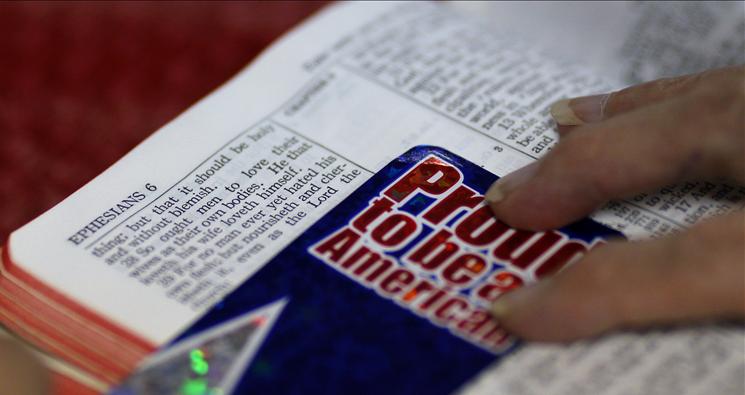A Victory for Religious Liberty at Kansas State
Yesterday, the ACLJ won a fast but important victory at Kansas State University. On Wednesday, the student body president of KSU’s Salina campus contacted us with an urgent question: Could the university censor his graduation speech?
KSU student Brett Cooper was set to give the student body president’s traditional address to students, but the university objected to religious references in Brett’s proposed text. In emails, one administrator told him that any mentions of religion must be “inclusive” (whatever that means) in accordance with KSU’s “Principles of Community.”
Brett reminded the administrator that one of the core principles supported free speech: “We affirm the right of each person to freely express thoughts and opinions in a spirit of civility and decency.”
The administration was unimpressed. Brett next received a response from a senior administrator. He was adamant:
Your comments are not appropriate for a person who considers themselves of the Muslim, Jewish, Hindu, Buddhist, or of no faith. By your example, this would indicate that it is OK for any faculty member to present any religious, political, or social point of view without restraint to captive students in their class.
Remember that as a member of the graduating class, what can an offended student do but stand up and walk out, therefore ruining a special day in their life. You can not have a policy that allows you to have your interpretation of free speech and demand that others follow only your definition.
I would also remind you that this is not an issue of free speech. This is an issue of unintended consequences and of mutual respect for others. I hope that you will reconsider your stance and respect those around you who may not share your beliefs.
I had two thoughts when I read this. First, has the dean been to a college class lately? The modern professor often specializes in spewing his ideological vitriol in class (regardless of the topic). Second, what did Brett want to say that would cause such an extreme reaction? Was he calling for holy war against infidels? Was he – in classic fire-breathing preacher style – telling the assembled graduates to “turn or burn”?
Hardly. He wanted to read Jeremiah 29:11: “For I know the plans I have for you,” declares the LORD, “plans to prosper you and not to harm you, plans to give you hope and a future."
Wait. What? That verse was causing the dean to warn that people might walk out? In meetings, the school offered Brett a compromise: He could substitute the phrase “higher power” for “Lord” thus rendering the beginning of the verse: “For I know the plans I have for you, declares the higher power . . .” I’ve seen quite a bit of politically correct nonsense in my day, but this level of hypersensitivity surprised even me.
Fortunately for Brett the dean was wrong. This is an issue of free speech, and case law is clear that not only are students free to place religious references in their own speeches but that even commencement prayers are lawful at college graduations.
Shortly after Brett contacted us, the ACLJ sent a letter to KSU’s general counsel, and the university – to its great credit – backed down. At 4:40 p.m. yesterday we received word that Brett could give his speech as planned.
The university should be congratulated for doing the right thing so quickly, Brett should be applauded for resisting the administrators’ initial censorship, and students should remember that they do not shed their constitutional rights at the schoolhouse gate.

